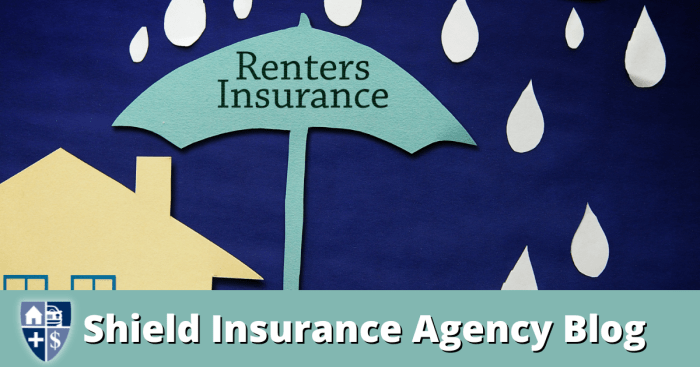Embark on a journey through Renters Insurance 101: Everything You Need in 2025, where valuable insights await to enhance your understanding of this vital topic. Let's delve into the essentials with a blend of expertise and clarity, making this exploration both informative and enjoyable.
Provide detailed information in the second paragraph about the topic
Overview of Renters Insurance
Renters insurance is a type of insurance policy that provides coverage for tenants renting a property. It is important for tenants to have renters insurance to protect their personal belongings and liability in case of unexpected events.
Key Components Covered by Renters Insurance
- Personal Property Coverage: This includes protection for your personal belongings such as furniture, electronics, and clothing in case of theft, fire, or other covered perils.
- Liability Coverage: This component covers you in case someone is injured in your rental property and you are found legally responsible for their injuries or damages.
- Additional Living Expenses: Renters insurance can cover the costs of temporary living arrangements if your rental becomes uninhabitable due to a covered event.
Benefits of Having Renters Insurance for Tenants
- Peace of Mind: With renters insurance, tenants can have peace of mind knowing that their personal belongings are protected in case of unexpected events like theft, fire, or natural disasters.
- Financial Protection: Renters insurance provides financial protection by covering the cost of replacing personal belongings and liability claims, which can save tenants from significant out-of-pocket expenses.
- Legal Protection: In the event of a liability claim or lawsuit, renters insurance can help cover legal expenses, protecting tenants from potential financial burden.
Types of Coverage
When it comes to renters insurance, there are different types of coverage available to protect your belongings and provide liability coverage in case of accidents. Two common types of coverage are actual cash value and replacement cost coverage.
Actual Cash Value
Actual cash value coverage takes depreciation into account when determining the value of your belongings. This means that if your belongings are damaged or stolen, the insurance company will pay out the current value of the items, taking into consideration their age and condition.
While this type of coverage typically results in lower premiums, it may not fully cover the cost of replacing your belongings with new items.
Replacement Cost Coverage
On the other hand, replacement cost coverage does not factor in depreciation when reimbursing you for lost or damaged items. This means that you will receive enough money to replace your belongings with new items of similar kind and quality.
While this type of coverage usually comes with higher premiums, it provides more comprehensive protection and ensures that you can fully recover from a loss.Examples of Scenarios:
Actual Cash Value
If your five-year-old laptop is stolen, actual cash value coverage would reimburse you for the current value of a five-year-old laptop, which may be significantly less than what you originally paid for it.
Replacement Cost Coverage
If your laptop is stolen under replacement cost coverage, you would receive enough money to purchase a brand-new laptop of similar make and model, helping you get back on your feet without a significant financial burden.
Factors to Consider

When choosing a renters insurance policy, tenants should take into account several factors to ensure they have the right coverage for their needs. One important aspect to consider is the location of the rental property, as this can impact renters insurance rates significantly.
Another crucial factor is assessing the value of personal property accurately to determine appropriate coverage limits.
Location of the Rental Property
The location of the rental property plays a key role in determining renters insurance rates. Properties located in areas prone to natural disasters such as floods, earthquakes, or hurricanes may have higher insurance premiums due to the increased risk of damage.
On the other hand, rental properties in safe neighborhoods with low crime rates may qualify for lower insurance rates. It's essential for tenants to consider the location carefully and understand how it can affect their insurance costs.
Assessing Personal Property Value
Another important factor to consider when choosing renters insurance is assessing the value of personal property accurately. Tenants should take inventory of their belongings and estimate the total value of their possessions to determine the appropriate coverage limits. It's crucial to ensure that the insurance policy provides enough coverage to replace all belongings in case of theft, damage, or loss.
Underestimating the value of personal property can lead to insufficient coverage, leaving tenants vulnerable in case of a claim.
Understanding Policy Limits and Deductibles
Renters insurance policy limits and deductibles play a crucial role in determining the coverage and cost of your insurance plan. Let's dive into what these terms mean and how you can navigate them effectively.
Policy Limits
Policy limits refer to the maximum amount an insurance company will pay out for a covered claim. It is essential to choose policy limits that adequately protect your belongings and liabilities in case of an unforeseen event.
- Assess the total value of your possessions: Take inventory of all your belongings and estimate their value to determine an appropriate coverage limit.
- Consider liability coverage: Factor in potential legal expenses or medical bills that may arise if someone is injured on your property.
- Review special limits: Some insurance policies have specific limits for certain items like jewelry, electronics, or artwork. Make sure these limits align with the value of your possessions.
- Consult with your insurance agent: Discuss your specific needs and concerns with an insurance professional to determine the right policy limits for your situation.
Deductibles
A deductible is the amount you have to pay out of pocket before your insurance coverage kicks in. Choosing the right deductible can impact your premium costs and out-of-pocket expenses in the event of a claim.
- Balance between premium and deductible: Opting for a higher deductible can lower your premium but require more out-of-pocket expenses upfront. A lower deductible means higher premiums but less out-of-pocket costs in case of a claim.
- Consider your financial situation: Assess how much you can comfortably afford to pay in deductibles without causing financial strain.
- Adjust based on risk tolerance: If you prefer lower out-of-pocket costs, a lower deductible might be suitable. For those willing to take on more risk for lower premiums, a higher deductible could be the right choice.
- Revisit deductibles periodically: As your financial situation changes or your risk tolerance evolves, reassessing your deductibles can help ensure your coverage aligns with your current needs.
Additional Coverage Options
When it comes to renters insurance, there are additional coverage options that tenants can consider adding to their policies for extra protection.
Endorsements like Earthquake or Flood Insurance
Adding endorsements like earthquake or flood insurance to your renters insurance policy can provide coverage for natural disasters that are not typically included in a standard policy. These endorsements can be crucial if you live in an area prone to such events.
- Earthquake Insurance: This coverage can help protect your personal belongings and provide assistance with temporary housing in the event of an earthquake.
- Flood Insurance: In case of a flood, this endorsement can cover damages to your belongings and property that may not be covered by a standard policy.
Situations Requiring Additional Coverage
There are specific situations where adding extra coverage options to your renters insurance policy may be necessary to ensure adequate protection.
- Rental property located in a high-risk area prone to natural disasters.
- Owning expensive jewelry, artwork, or electronics that exceed the coverage limits of your standard policy.
- Running a home-based business and needing coverage for business equipment or liability.
Filing a Claim
When it comes to filing a renters insurance claim, tenants should follow a few key steps to ensure a smooth process. From documenting the damage to communicating with the insurance company, being prepared can make a significant difference in the outcome of your claim.
Documentation Required
- Provide a detailed inventory of the damaged or stolen items, including receipts, photos, and any other proof of ownership.
- Submit a copy of the police report if the claim involves theft or vandalism.
- Keep track of any communication with the insurance company, including claim numbers, adjuster's contact information, and deadlines.
Tips for Expedited Process
- Report the claim as soon as possible to start the process promptly.
- Be honest and accurate when providing information to the insurance company.
- Follow up regularly to ensure the claim is moving forward and address any delays promptly.
- Work with the claims adjuster and provide any additional documentation or information they request in a timely manner.
- Keep records of all expenses related to the claim, such as temporary accommodations or repairs, for reimbursement purposes.
Last Word

Concluding our discussion on Renters Insurance 101: Everything You Need in 2025, we have covered crucial aspects that underscore the importance of being well-informed in safeguarding your rented living space. As you navigate the realm of renters insurance, may these insights guide you towards making informed decisions for a secure future.
Key Questions Answered
What does renters insurance typically cover?
Renters insurance commonly covers personal belongings, liability protection, and additional living expenses in case of unforeseen events like theft, fire, or natural disasters.
How does the location of a rental property affect renters insurance rates?
The location of a rental property can impact renters insurance rates due to varying risks associated with different neighborhoods, such as crime rates and proximity to natural disaster-prone areas.
What are policy limits and deductibles in renters insurance?
Policy limits refer to the maximum amount an insurance company will pay for a covered loss, while deductibles are the out-of-pocket expenses a policyholder must pay before the insurance coverage kicks in.
When should tenants consider adding optional coverage like earthquake or flood insurance?
Tenants should consider adding optional coverage like earthquake or flood insurance if they reside in areas prone to these specific risks, as standard renters insurance policies may not provide coverage for such events.



